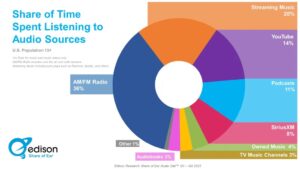Silver Economy: Too old to rock and roll but too young to die!

With Europe’s population getting older, music bands that have been around for decades have the potential to attract an older population for live concerts or recorded music. The so-called silver economy, which includes economic activities, products, and services for people over 50, is becoming an important market. With higher purchasing power, more free time, and a desire for cultural and leisure activities, the baby boomer generation represents a significant portion of the consumer market. The silver economy is expected to be a driving force for the economy of the future, with its characteristics of being glocal, inclusive, digital, circular, eco-friendly, and collaborative. This market also offers opportunities for the creation of new products and services adapted to the needs of older people and the emergence of new professions, such as those related to care for the elderly. Music bands that cater to the silver economy have the potential to tap into this market and contribute to the economy’s growth.
Potential for live performances and new recordings, especially for classic rock bands
Older music bands, such as classic rock bands, have the potential to play live or record new music that caters to the older population. With the aging of the population, there is a growing demand for entertainment that speaks to the experiences and tastes of this demographic. Many people who grew up listening to classic rock still enjoy the music and would appreciate the opportunity to see their favorite bands perform live or release new material.
There are several reasons why classic rock bands are well-suited to appeal to the silver economy. Firstly, many of these bands have been around for decades and have a loyal fanbase that has grown with them. These fans are likely to be in their 50s, 60s, and 70s now, and they still have a strong connection to the music that they loved when they were younger. By playing live or releasing new music, classic rock bands can tap into this nostalgia and provide a sense of comfort and familiarity that is valued by older people.
Secondly, classic rock music has a timeless quality that transcends generations. Many of the songs that were popular in the 1960s and 1970s are still relevant today, and they continue to be played on the radio and in movies and TV shows. By playing live or recording new music, classic rock bands can reach a wider audience, including younger generations who appreciate the music’s enduring appeal.
Thirdly, classic rock bands have a reputation for putting on energetic and engaging live performances. Many of these bands have been touring for decades, and they know how to put on a show that will get the audience on their feet and singing along. Live music is a powerful way to connect with people, and classic rock bands have a unique ability to create a sense of community and shared experience that is especially valuable for older people who may be feeling isolated or disconnected.
Finally, there is a growing trend towards intergenerational activities and events that bring together people of different ages. Classic rock bands can play a role in this by providing entertainment that appeals to both older and younger generations. By playing live or recording new music, these bands can help to bridge the generation gap and create a sense of shared culture and heritage that is valued by all.
In conclusion, the silver economy represents a significant opportunity for classic rock bands to play live or record new music that speaks to the experiences and tastes of older people. With the aging of the population, there is a growing demand for entertainment that provides a sense of comfort, familiarity, and community. Classic rock music has a timeless quality that transcends generations, and by tapping into this nostalgia, these bands can reach a wider audience and help to bridge the generation gap. With the right approach, classic rock bands have the potential to be a driving force in the silver economy and to play a vital role in shaping the culture of the future.
The potential for classic rock bands to play live or record music for older populations is significant in the context of the silver economy. Music has always been a powerful tool for bringing people together and promoting emotional well-being, and this is especially true for older individuals who may be experiencing isolation or loneliness.
Many classic rock bands are still active and touring, with some even seeing a resurgence in popularity among younger generations. These bands often have a loyal fanbase of older individuals who grew up listening to their music and still enjoy it today. By continuing to tour and perform, these bands not only provide entertainment for their fans, but also contribute to the economy through ticket sales, merchandise, and other related activities.
In addition to live performances, classic rock bands can also continue to record and release new music. While it may not be as commercially successful as their earlier work, there is still a market for new music from these bands among their older fanbase. This not only provides a creative outlet for the musicians themselves, but also contributes to the overall cultural richness of society.
Furthermore, the silver economy presents an opportunity for classic rock bands to explore new ways of engaging with their fans. As mentioned earlier, older individuals are often more loyal to their brands and require more specific and personalized products and services. Classic rock bands can leverage this by offering unique experiences such as VIP meet-and-greets, personalized merchandise, or even private concerts.
In conclusion, the silver economy represents a significant shift in the demographic makeup of society, with older individuals becoming an increasingly important driver of the economy. Classic rock bands, with their loyal fanbase of older individuals, have the potential to contribute to the silver economy through live performances, new music releases, and personalized experiences. By embracing this demographic shift and adapting to the changing needs of their fans, these bands can continue to thrive while also promoting cultural richness and emotional well-being among older populations.
Image credit: Pixabay


